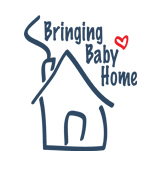|




|
|
Articles and Resources
Staying "In the Know"
Staying "in the know" is an important part of parenting at all stages of
your child's development. Check back frequently for events, articles,
and fabulous bits of information that is useful, accurate and meaningful to
parenting and raising children.
Lectures and Events in Seattle
and on the Eastside
March
1, 2012 @ Washington Cathedral
Nurture Shock: New
Twists that Shape Children's Success, Ashley Merryman
March
6, 2012, Town Hall, Seattle
Aliens on Planet Teen
and Tween: Anthony Wolf, Ph.D
March
21, 2012, Maydenbauer Center, Bellevue
Heathy Happiness and
Family Balance: Wendy Sue Swanson, MD
May
10, 2012 , Town Hall, Seattle (always a sell out)
Making Marriage Work:
Trust Love, Loyalty, John Gottman, Ph.D
To learn more about
these events go to >>
www.parentmap.com/lectures
Try This
B A B Y - M A
S S A G E - F
O R - B E G I
N N E R S
Babies simply love to be touched. In
fact, they thrive on it. It's a critical part of growth and
development. All that skin-to-skin contact not only helps you and
your baby bond, it can comfort your
baby when he's upset and sometimes ease the symptoms of colic.
This simple six-step "I Love You" massage
can help you get started.
All the steps are shown below for easy printing. You can also look
at
the slide show version to see the same steps.
http://www.babycenter.com.ph/baby/dailycare/massageforbeginnersprintable/
Articles and Reports:
The Effects of Father Involvement: Father Involvement Research
Alliance (2007)
I n
the year 2002, we compiled the first summary of the research that examined
the impact of father involvement on children’s developmental outcomes, the
co-parenting relationship, and development of fathers themselves. In 2007,
we updated this review by examining approximately150 new research studies in
these areas. Although this does not include all of the research on fathering
conducted during this period, it does provide an update of key published
works on father involvement. In general, the research results reported in
2002 have been strengthened by additional research that we have examined in
this period. One of the challenges of looking at the effects of father
involvement is to disentangle father involvement from the effects of social
class and family structure. We also include here new and emerging findings
that provide deepening insight into the complex phenomenon of fathering.
Click here for a PDF of
this interesting
research
King5 Report: Parent-to-Parent: Getting your Child to Exercise
We all know that kids love to run and play and be physically active. But
did you know that exercise helps kids learn? Linda Morgan, author of the
book Beyond Smart, explains how movement is good for your child’s
brain.
http://www.king5.com/video/featured-videos/Parent-to-Parent-Exercise-is-good-for-your-childs-brain-119066934.html
WOW! That's
Interesting:
What's my baby saying?: Dunstan Baby LanguageEvery newborn
communicates from birth to 3 months using 5 distinct sounds that signal
hunger, tiredness, need to burp, lower wind/gas and discomfort. This is
regardless of the language their parents speak. It is not a learned
language. Rather, it is a natural way for every baby to express their
physical needs.
The 'words' that form the basis of what we have called the Dunstan Baby
Language, are sounds that are based on baby's physical responses. These
are called reflexes. For example, when a baby is hungry it will start to
suck, and as sound is added to the reflex, the 'word' for hunger is
produced. These are the baby's first communications, which occur before
actual crying develops. The sooner the 'word' for hunger is identified the
sooner a parent can respond by feeding, resulting in less crying and less
discomfort for baby - and for parents.
Click Here to read more:
https://www.dunstanbabylanguage.com/about.html
Patricia Kuhl: The linguistic
genius of babies
At TEDxRainier, Patricia Kuhl shares astonishing
findings about how babies learn one language over another -- by
listening to the humans around them and "taking statistics" on the
sounds they need to know. Clever lab experiments (and brain scans)
show how 6-month-old babies use sophisticated reasoning to
understand their world.
http://www.ted.com/talks/patricia_kuhl_the_linguistic_genius_of_babies.html
|








